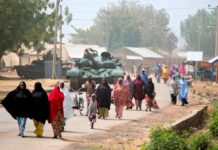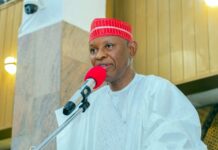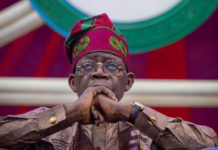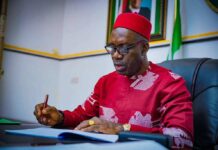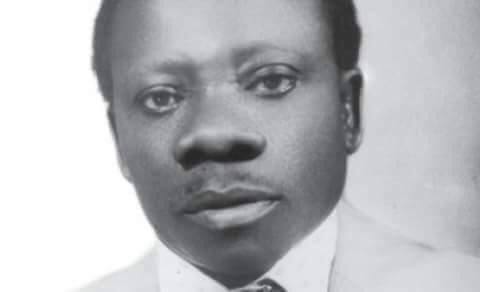I had promised myself to post something about the late Senator Obi Wali on the 26th of April because it marked the 30th year of his gruesome murder. But like promises made by politicians, the date came and passed without my remembering a thing about the promise.
Senator Obi Wali, PhD, was murdered right in his house at Rumuigbo, his hometown, a few miles northeast of Port Harcourt along Owerri road by unknown persons who broke into his bedroom upstairs that fateful night. They escaped without trace. But the entire Ikwerre nationality was thrown into mourning for many days after that incident. Till date no one knows who killed him and why.
Obi Wali was the foremost Ikwerre son and represented for the Ikwerre what Obafemi Awolowo was for the Yoruba, Emeka Ojukwu for the Igbo and Ahmadu Bello, the Arewa. Ken Saro-Wiwa, who was Obi Wali’s close ally, represented even more than this for the Ogoni people.
I grew up to be emotionally attached to the late Obi Wali after my father wished me to be like him by reading English at the university. Somehow, I wanted to read political science because I had the innocent ambition to become the President of Nigeria. But that was then. Many things happened afterwards and father and son didn’t have their wishes come to be.
My father’s wish wasn’t really because of the political antecedents of the late senator (which I was more inclined to), but it was much more because of the marks he made in the academics. Obi Wali was reputed to be the first PhD holder in English in our own clime. And before he left the academia for politics, he made a statement about African literature which rings till today. He declared the death of African literature in a paper he presented at a conference on African Literature at Makerere University, Uganda in 1962 titled, The Dead End of African Literature. He said any African literature that is written or performed in a foreign language cannot be said to be an African literature. Most of the celebrated published African stories then were written in European languages.
When it became obvious that the people of the former Rivers Province had to rally together to fight for the freedom, yes freedom, of their peoples from internal domination in the then Eastern Region, Obi wali was one of the leading lights from the Ikwerre nationality that joined the movement. He, Nwobidike Nwanodi, Okogbule Wonodi, Chief Emmanuel Oriji, were among the leading lights of the Ikwerre in the movement.
After the creation of Rivers State, Obi Wali was made a commissioner in the administration of Cdr. Diette-Spiff. He was actually the first commissioner for education. However, when things settled after the Nigerian Civil War, the non-Ijaw groups in Rivers State began to complain about domination by the more populous and influential Ijaw groups in the state. It became obvious that the non-Ijaw peoples who were largely mainland people had to begin to agitate for the creation of their own state. Thus the movement for the creation of Port Harcourt State started with Obi Wali as its champion. This made him very popular among the Ikwerre and the other minority groups but unpopular with the Ijaw political elite.
The movement for the creation of Port Harcourt became so emotional that it caused the late Senator Francis John Ellah, who represented Ahoada in the senate to resign his membership of the senate after his motion for the creation of Port Harcourt State failed. He titled his resignation, “The Unfinished Motion.” Rather than listen to his motion, he was heckled down by the majority NPN senators.
Though the demand for a Port Harcourt State did not materialize, when Nigeria returned to civil rule in 1979, Obi Wali joined the Igbo dominated Nigeria Peoples Party led by the late foremost nationalist, Nnamdi Azikiwe, against the National Party of Nigeria where most of the Ijaw leaders in Rivers State belonged. He was elected senator to represent Port Harcourt and was made the NPP Senate leader in the senate. He lost reelection to Ned Owuru of the NPN in 1983.
At the last plenary of the Second Senate, it was Senator Obi Wali that moved the motion, “Once a senator always a senator.” This made anyone that has been to the Nigerian senate to affix the title Senator to his name.
After the collapse of the Second Republic, he retired to community life but was very much involved in activities connected to the emancipation of the Ikwerre people, particularly after the Ogoni under Saro-Wiwa launched MOSOP and the Ogoni Bill of Rights.
Not many people liked his strong positions on local issues and those opposed to his views felt threats with his presence. He was hacked to death on the night of 26th April, 1993. A very sad day for the Ikwerre and other people he dedicated his life fighting for.
It was very touching for me when very early the morning after, I was detailed from the Sunray newsroom to report the incident. I cannot say whether it was the reporter’s instincts or my emotional attachment to the late sage. As soon as I got to his house I just pushed through the large crowd that had gathered there and found my way to his bedroom upstairs where I saw the blood that had congealed on the rug in the room.
Port Harcourt was held down for several days after the incident as angry youths marched violently through the streets to protest his death. Fingers were pointed at a traditional ruler in his Apara clan, who was suspected of having an inappropriate relationship with a Wali family member. The civilian administration then also came under suspicion. Apparently to calm the situation, the government of Rufus Ada-George instituted a panel of inquiry which took evidence and testimonies from members of the public on the matter.
Obi Wali’s remains were buried on February 24th, 1994. On that day thousands of youths dressed in mourning clothes including Sergeant Awuse, who was then an energetic opposition leader, followed his burial motorcade on foot as it moved round Port Harcourt through the Port Harcourt City Hall to Rumuigbo.
Two months after, his close friend and comrade in the fight for minorities’ rights, Ken Saro-Wiwa and some of his Ogoni kinsmen were arrested and eventually executed immediately after a tribunal passed death sentences on them. The military regime of Gen Sani Abacha did not give them an option of appeal.
It’s not certain if anyone was tried or convicted for the murder. But all was calm and normal at Rumuigbo Thursday, which marked the 30th year of the violent murder of one of Africa’s foremost literary and political icons.
